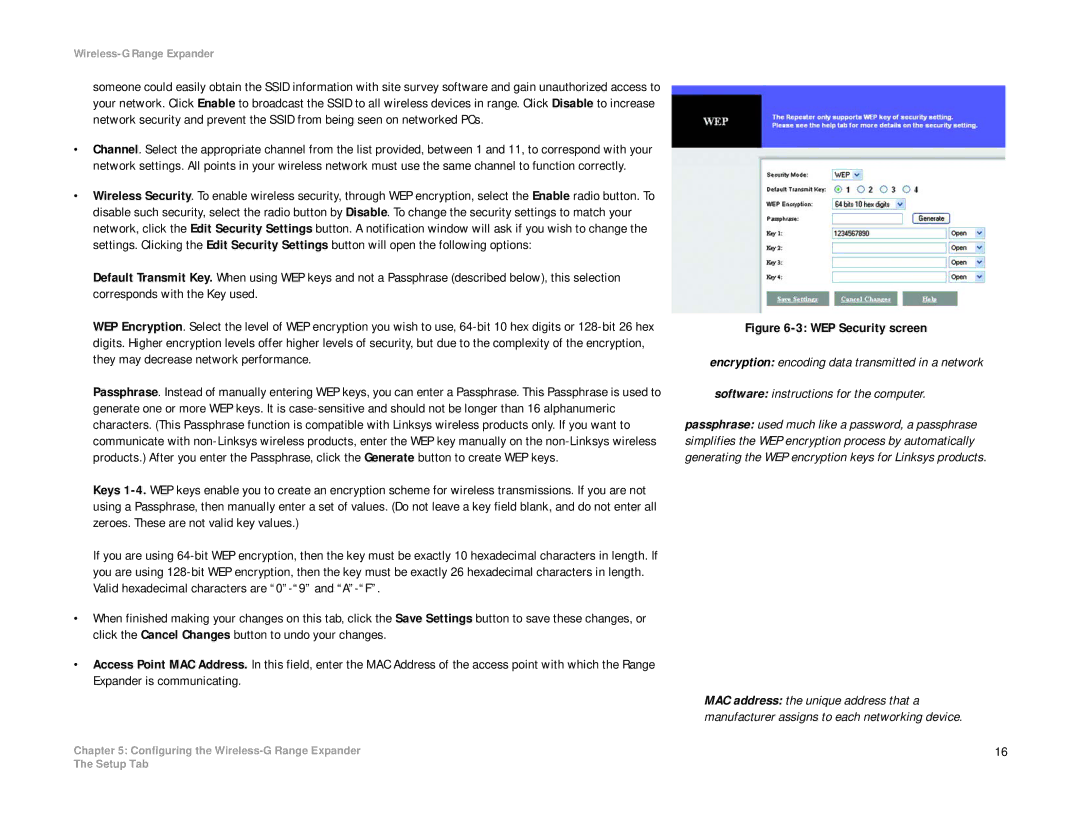
Wireless-G Range Expander
someone could easily obtain the SSID information with site survey software and gain unauthorized access to your network. Click Enable to broadcast the SSID to all wireless devices in range. Click Disable to increase network security and prevent the SSID from being seen on networked PCs.
•Channel. Select the appropriate channel from the list provided, between 1 and 11, to correspond with your network settings. All points in your wireless network must use the same channel to function correctly.
•Wireless Security. To enable wireless security, through WEP encryption, select the Enable radio button. To disable such security, select the radio button by Disable. To change the security settings to match your network, click the Edit Security Settings button. A notification window will ask if you wish to change the settings. Clicking the Edit Security Settings button will open the following options:
Default Transmit Key. When using WEP keys and not a Passphrase (described below), this selection corresponds with the Key used.
WEP Encryption. Select the level of WEP encryption you wish to use,
Passphrase. Instead of manually entering WEP keys, you can enter a Passphrase. This Passphrase is used to generate one or more WEP keys. It is
Keys
If you are using
•When finished making your changes on this tab, click the Save Settings button to save these changes, or click the Cancel Changes button to undo your changes.
•Access Point MAC Address. In this field, enter the MAC Address of the access point with which the Range Expander is communicating.
Figure 6-3: WEP Security screen
encryption: encoding data transmitted in a network
software: instructions for the computer.
passphrase: used much like a password, a passphrase simplifies the WEP encryption process by automatically generating the WEP encryption keys for Linksys products.
MAC address: the unique address that a manufacturer assigns to each networking device.
Chapter 5: Configuring the | 16 |
The Setup Tab
